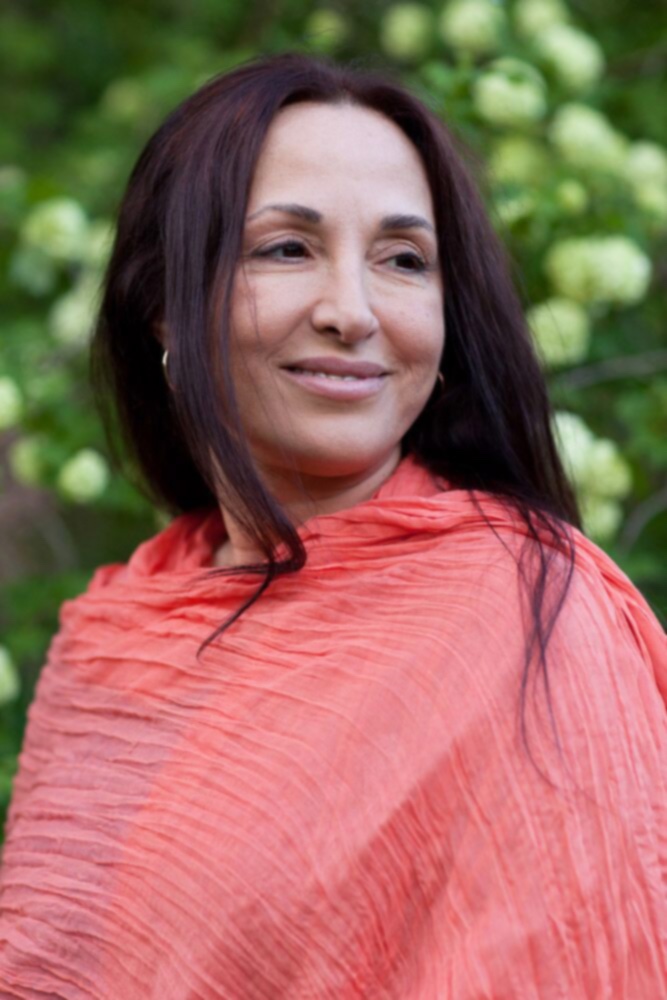Most of us live our lives in a continuous state of moving toward happiness and away from pain. We believe what we have is never enough, and our continual efforts to grasp the “next best thing” that we think will make us happy inevitably leads to suffering.
As long as we continue to see happiness as a state that can only be found by getting something outside of ourselves, as long as we continue to experience endless cycles of acceptance and rejection, desiring and not desiring, pushing in one direction and pulling in another, we will never experience lasting happiness.
At some point in our personal journeys, we hear about this thing called “enlightenment” and we think, “Aha, this will be my ticket out of suffering!” and so begins the search for enlightenment.
But what is this elusive state called enlightenment?
What is Enlightenment?
The Sanskrit word Bodhi, often translated as “enlightenment”, actually means “awakened”. Awakened from what? In essence, from the trance of believing that we are separate individuals, apart from all that is.
Another word for enlightenment or awakening is “awareness”. Not awareness of something in particular, but an awakening to pure awareness itself.
Where do we find Enlightenment?
Typically, we go looking “out there”, maybe we go searching in India, in caves and monasteries, or endless self- help workshops and spiritual retreats. And while we may find other awakened people in these places, we won’t necessarily find our own enlightened nature.
We just continue to miss it, to overlook it, simply because we are looking everywhere except in the most obvious place; right at home, right here in this present ordinary moment.
What we are looking for is always already here
Many years ago, the Persian mystic poet, Rumi, described in one of his poems his own realization with this paradox of searching for the place we already stand in:
“I have lived on the lip of insanity, wanting to know reasons, knocking on a door. It opens. I’ve been knocking from the inside.”
This poem mirrors the surprise and delight that many seekers feel when they discover after years of desperate searching that they have never been apart, even for an instant, from the home they have been seeking for so long.
How do we find Enlightenment?
There are two approaches to realizing our true nature. The first is to discover the truth of who we are. The second is to discover what we are not.
These two approaches are actually the same thing, two ways of expressing the same idea. If we get rid of the false thoughts of who we think we are, the remainder is what we really are. And when we realize what we really are, all thoughts of who we thought we were drop away and we are free from the suffering of misidentification.
In the next column, we will explore who or what we really are and dispel some ideas of what we are not.
In cerca dell’illuminazione
La maggior parte di noi vive la propria vita in una continua ricerca della felicità e in una costante fuga dal dolore. Crediamo che ciò che abbiamo non sia mai sufficiente e il nostro sforzo per cogliere “le cose migliori” che pensiamo ci rendano felici, inevitabilmente ci conducono alla sofferenza.
Fintanto che continuiamo a vedere la felicità come uno stato che può essere trovato come qualcosa al di fuori di noi stessi, fintanto che continuiamo a sperimentare cicli infiniti di accettazione e rigetto, desiderio e avversione, spingendo in una direzione e tirando da un’altra, non sperimenteremo mai una durevole felicità.
Ad un certo punto dei nostri personali viaggi ascolteremo questa cosa chiamata “illuminazione” e penseremo “ah, ecco la mia possibilità di uscire dalla sofferenza” ed è così che comincia la ricerca dell’illuminazione.
Ma che cos’è questo evasivo stato chiamato illuminazione?
Cos’è l’illuminazione?
In sanscrito la parola Bodhi, spesso tradotta come “illuminazione”, in effetti significa “risveglio”.
Risveglio da cosa? In concreto, dall’illusione di credere che noi siamo separati da tutto quello che è.
Un altro significato di illuminazione o risveglio è “consapevolezza”. Non la consapevolezza di qualcosa in particolare ma un risveglio alla pura propria consapevolezza.
Ma dove la troviamo l’illuminazione?
Tipicamente noi guardiamo all’esterno, forse andiamo a cercare in grotte e monasteri dell’India, oppure in workshop di auto terapie e ritiri spirituali. E mentre possiamo incontrare in questi luoghi altre persone risvegliate noi non necessariamente troveremo la nostra natura illuminata.
Noi continuiamo a sentirla lontano, a sottovalutarla perché guardiamo ovunque eccetto nel posto più ovvio, proprio a casa nostra, giusto qui e in questo attuale normale momento.
Quello che cerchiamo lo abbiamo già
Molti anni fa il poeta mistico persiano Rumi ha descritto, in una delle sue poesie, come se ne è reso conto grazie a questo paradosso nel cercare il posto dove già siamo:
“Sono vissuto al bordo della insanità, volendo conoscere ragioni, bussando a una porta. Si apre.
Stavo bussando dall’interno”.
Questa poesia rispecchia la sorpresa e la gioia che molti ricercatori provano quando scoprono, dopo anni di ricerca disperata, che loro non sono mai stati fuori nemmeno per un momento dalla casa che loro avevano cercato così a lungo.
L’illuminazione, come trovarla?
Ci sono due approcci per realizzare la nostra vera natura. Il primo è scoprire veramente chi siamo. La seconda è scoprire cosa non siamo.
Questi due approcci sono in effetti la stessa cosa, due modi di esprimere la stessa idea. Se noi ci liberiamo dei falsi pensieri di chi pensiamo di essere, quello che rimane è ciò che in effetti siamo.
E quando ci rendiamo conto di chi veramente siamo, tutti i pensieri circa chi pensavamo di essere se ne vanno e superiamo la sofferenza causata da un’equivoca identificazione.
Nel prossimo articolo esploreremo chi o cosa siamo realmente ed elimineremmo alcune idee di cosa non siamo.
WEB: www.enzavita.com and https://www.mahashanti.org/
FB: https://www.facebook.com/EnzaVitaTeachings and https://www.facebook.com/instantpresencesatsang
Enza Vita is the publisher and editor of InnerSelf newspaper, the author of the book “Instant Presence/ Allow Natural Meditation to Happen” and the founder and director of the MahaShanti Foundation, a non-profit organization dedicated to spiritual awakening. She has distilled over 40 years of spiritual exploration into a modern, practical and authentic spirituality that engages with the universal teaching underlying all religions.
Enza Vita è l’editore ed editore del quotidiano InnerSelf, l’autrice di “Instant Presence – Lascia che la meditazione naturale ti accada” e la fondatrice e direttrice della MahaShanti Foundation, un’organizzazione senza scopo di lucro dedicata al risveglio spirituale. Svolge da oltre 40 anni l’insegnamento di pratiche relative a una spiritualità moderna, pratica e autentica sulla quale si basano tutte le religioni.








